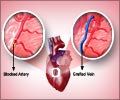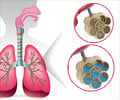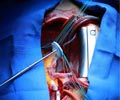- Congenital Mitral Stenosis With or Without Associated Defects - (http://circ.ahajournals.org/cgi/content/full/102/suppl_3/III-166)
- Mitral Stenosis - (http://www.emedicine.com/med/topic1486.htm)
- Hospitalization statistics for Mitral valve disease: - (http://www.wrongdiagnosis.com/m/mitral_valve_disease/stats.htm#medical_stats)
- Congenital Mitral Stenosis - (http://www.emedicine.com/ped/topic2517.htm)
- Mitral valve regurgitation - (http://www.nlm.nih.gov/medlineplus/ency/article/000176.htm)
- Heart & Vascular Institute (Miller Family) - (http://www.clevelandclinic.org/heartcenter/pub/guide/disease/valve/mvrepairfaq.htm)
Causes of Mitral Regurgitation
The causes of Mitral valve regurgitation are Acquired or Congenital. Congenital Mitral regurgitation is very rare and is usually secondary to some other associated congenital abnormalities.
The causes of acquired chronic mitral regurgitation include -
- Rheumatic heart disease
- Hypertension
- Coronary artery disease
- Mitral Valve Prolapse
- Marfan’s syndrome
- Endocarditis
- Cardiac tumors
- Secondary to dilated cardiomyopathy and aortic regurgitation.
An anti-obesity drug Fen-Phen contained Fenfluramine, also known as Pondimin was shown to cause mitral valve disease and cardiac fibrosis. Studies showed that this drug caused thickening of the valve leaflets and chordae tendinae. The drug was withdrawn from US market in 1997.
Chronic mitral regurgitation may be asymptomatic in the compensated phase, when the left ventricle hypertrophies and the left atrial size increases proportionately to maintain the cardiac output. When the patient progresses to the decompensated phase, there may be left ventricular dysfunction. He/She may have symptoms of heart failure. Pulmonary congestion increases.















Methods for Mitral Valve Repair: Annuloplasty:In annuloplasty an artificial ring is placed around the annulus of the valve.This ring reinforces the annulus and restores the valve to its normal shape and size. Balloon Valvuloplasty:Balloon valvuloplasty is performed using a catheter, i.e. a very thin flexible tube which can be inserted into the body, with a balloon at the end. The balloon is put inside the valve and is expanded thus stretching the valve and bringing it back to its normal size. For more info: heart-consult.com/articles
Various symptoms are
* Shortness of breath.
* Pulmonary edema or fluid accumulation in the lungs.
* Orthopnea or shortness of breath while lying flat.
* Paroxysmal nocturnal dyspnea or Cardiac Asthma
* Decreased exercise tolerance.
* Swollen feet or ankles.